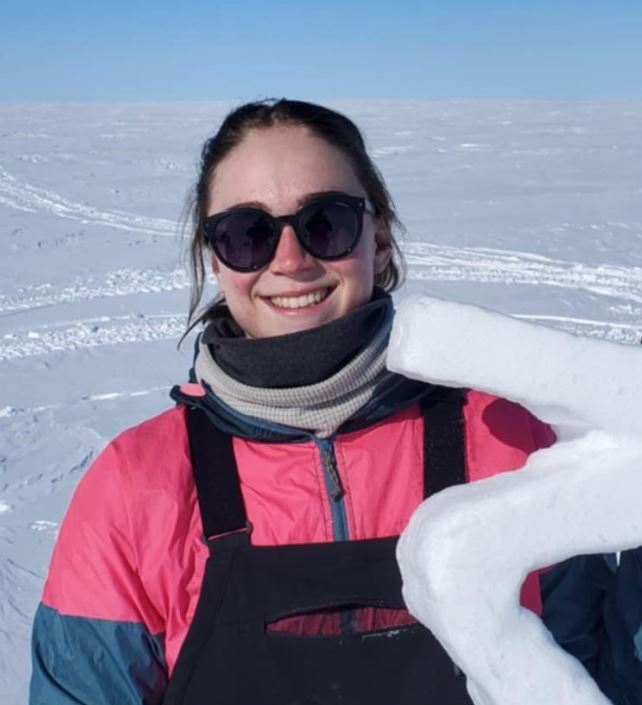Cohort 6
 Érika Boisvert-Vigneault
Érika Boisvert-Vigneault
- One Planet Researcher, based at Northumbria University Department of Geography and Environmental Sciences
- Email: erika.boisvert-vigneault@northumbria.ac.uk
Project Title:
Monitoring and Predicting Rain-on-Snow Events in the Canadian Arctic Archipelago
Supervisory Team:
Professor Melody Sandells (Principal – Northumbria University)
Professor Nick Rutter (Northumbria University)
Professor Alexandre Langlois (Université de Sherbrooke, Canada)
(Newcastle Supervisor tbc)
Bio:
I have always been fascinated by nature, particularly by the way different components interact to form resilient ecosystems where life can thrive. This passion led me to study ecology and to work for six months in the rainforests of Costa Rica, where I learned about the intricacies of ecosystems and the specific adaptations of local flora and fauna. As my awareness of the consequences of climate change grew, I began to focus my attention on environments undergoing rapid change, such as the Arctic, wondering whether the current inhabitants of these regions would be able to adapt. This prompted me to direct my studies toward this question, leading to a master’s degree in applied geomatics and remote sensing of the cryosphere, with a particular focus on extreme weather events that have significant consequences for ungulate populations in these areas. I had the opportunity to participate in and organize several field campaigns in the Arctic, where I collected snow data for my research project, while also engaging with the local community through casual discussions and organized workshops. Meeting them gave me a glimpse of the impact of a rapidly changing environment on their lives, and I hope that my work can contribute to their understanding and preparing for upcoming challenges.
Project overview:
The Arctic is one of the fastest-warming regions in the world as a result of climate change (Rantanen et al., 2022; Serreze et Barry, 2011) and is increasingly subject to extreme weather events. These events affect local communities' living conditions and also impact ungulates inhabiting the region. In the Canadian Arctic Archipelago (CAA), populations of Peary caribou and muskoxen have experienced significant losses due to extreme weather events, such as strong winds and rain-on-snow events, which prevent them from foraging during the winter, leading to nutrient deficiencies and mass mortality (Dolant et al., 2018; Gunn et al., 2006; Langlois et al., 2017; Miller et Gunn, 2003). Rain-on-snow events in the CAA are known to have the greatest impact on ungulate foraging and are increasing unpredictably in both frequency and intensity (Dolant et al., 2018; Langlois et al., 2017; Overland, 2021; Sasseville et al., 2024). However, their underlying drivers remain poorly understood. This project aims to identify the primary atmospheric drivers of rain-on-snow events across the CAA using remote sensing data, snow models such as SNOWPACK and Crocus, weather reanalyses, and Indigenous knowledge. It will also integrate these identified drivers to model future trends in rain-on-snow events in the CAA.
Research Questions:
- How is the frequency of rain-on-snow events spatially distributed across the Canadian Arctic Archipelago and what are the weather patterns leading to these events?
- How is the spatial distribution, frequency and magnitude of rain-on-snow events changing in the future through the Canadian Arctic Archipelago and why it is happening this way?
- Can rain-on-snow events event and their magnitude be monitored using a dual Ku-band radar?
Education:
MSc Applied Geomatics and Remote Sensing; Université de Sherbrooke, Canada; 2021 – 2024
BSc Ecology; Université de Sherbrooke, Canada; 2017 - 2021
Skills:
Fieldwork, Python, R, ArcGIS & QGIS, SNOWPACK, DGNSS systems
Hobbies:
Climbing, surfing, cooking and hiking








